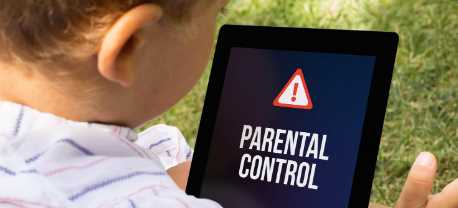For so many individuals, including children, the internet has significantly impacted daily life during the last few decades. Schools all throughout the nation are introducing children to the internet at an early stage of their education. Even earlier than that, a lot of parents already give their children access to smartphones and iPads.
Because children utilize social media at such a young age, it is imperative that they become proficient in its safe use as soon as possible. Children who are taught how to use social media properly will be better able to identify risks while still taking use of the advantages that these platforms have to offer.
Posting Personal Information
Information that can be used to identify an individual is known as personally identifiable information, or PII. The term 'PII' refers to information about you, such as your social security number, home address, passport number, credit card number, and other particulars that are frequently personal to you.
Since it is frequently necessary while performing certain basic actions online, such as making purchases, using PII online is not unusual. But it's important to know when and when to utilize this information online, particularly if they're using a public computer or browsing the internet unsupervised.
Discuss the use of personal information online with your children. They shouldn't ever divulge this information in open spaces like social media. Children should exercise caution when disclosing information that isn't necessarily private or personally identifiable information (PII).
You may, for instance, advise your children to create a screen name that makes it more difficult for just anyone to find their social media profiles rather than using their complete names for their accounts. Encourage children not to divulge any information they use as passwords for any accounts, such as their birthdate or the name of your animal.
Guidelines for Images
It's so commonplace to share images on social media that few people give it much thought, much less consider the potential repercussions. Even when a parent decides to share images of their kids on their own social media pages, concerns about consent immediately surface. Even if they are your friends or relatives, it is still inappropriate for anyone to upload a photo of another person online.
A child needs to understand the effect that uploading photographs can have on their life and the lives of those close to them before they even create their first social media profiles. Talk to your children about online privacy settings, consent, and what kinds of pictures are suitable to share.
With the exception of the people they want to invite to view their profile, users can make their accounts private on Facebook, TikTok, and other social networking platforms by adjusting their privacy settings. Make sure that these settings are enabled for your children, and advise them to limit who can view their profiles to those who they are familiar with in person, such as close friends and family.
Even if your child has private accounts, talk to them about asking permission before sharing photos. Encourage your children to get permission from their friends before sharing any pictures of them that include them. This offers the other individuals in the picture an opportunity to approve of having their photograph put online.
Trolling and cyberbullying
For a number of years now, cyberbullying has been a major problem. It frequently involves one or more people picking on and harassing someone else on the internet. Cyberbullying mostly affects children and adolescents, and it typically involves acquaintances from school or other social settings.
Trolling is a different type of online abuse that frequently takes place on social media, much like cyberbullying. Assaulting and unpleasant posts or statements are examples of trolling, which is frequently done by an anonymous user. A person trolling frequently has the intention of causing trouble online. They might be more likely to criticize someone publicly and publish comments about them if they don't know them.
Discuss both trolling and cyberbullying with your children. They should alert you or another responsible adult if they believe they are the target of internet harassment or bullying. Your youngster can block users on the majority of social media sites so that they can no longer read their accounts or communicate with them. Additionally, you can report inappropriate behavior to several social media platforms directly. As a result, offensive posts might be removed or the account of the provocateur might be suspended.
Never interact with bullies or online trolls as doing so could merely encourage them to keep up their bad conduct. The best course of action is to either block or report online bullies or trolls. If the abuse persists or worsens, more actions—like involving the authorities—could be done.




Leave Comment
1 Comments